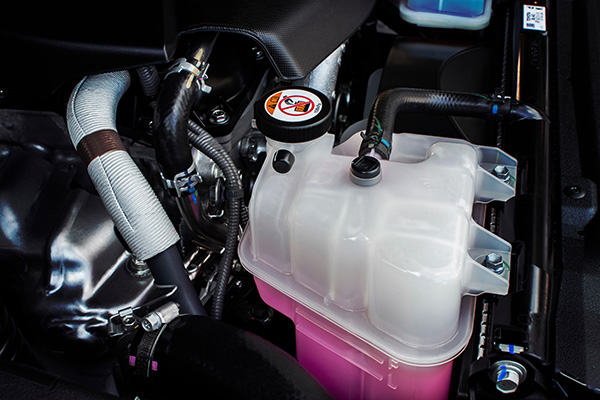
When the summer heat rolls in, and your car's engine starts to feel the strain, you might wonder: Is it okay to use water instead of antifreeze? After all, water is more accessible, and it seems like a quick fix. However, this seemingly simple swap can significantly affect your vehicle's cooling system and overall performance. We will explain whether using water instead of antifreeze during hot weather is safe.
The Role of Antifreeze
Antifreeze, or coolant, plays a crucial role in regulating your engine's temperature. It is designed to prevent the engine from overheating in the summer and freezing in the winter. But how does it do this? Antifreeze contains chemicals like ethylene glycol or propylene glycol, which have a higher boiling point and lower freezing point than water. This means that antifreeze can handle the extreme temperatures that your engine might face, ensuring that the engine runs smoothly and efficiently.
Moreover, antifreeze contains corrosion inhibitors that protect the engine and cooling system from rust and scale buildup. This protection is vital because rust and scale can clog the radiator and reduce the efficiency of the cooling system. Without these inhibitors, your engine might suffer from reduced performance and a shorter lifespan.
The Risks of Using Water Alone
So, what happens if you decide to use just water instead of a proper antifreeze mixture? While water can help in an emergency situation, relying on it as a long-term solution is not advisable. Here are the primary risks associated with using water alone:
Overheating
Water has a lower boiling point (212°F) compared to antifreeze mixtures, which typically have a boiling point of around 223°F to 256°F. This means that in hot weather, water is more likely to boil and evaporate, leading to engine overheating.
Corrosion
Without the corrosion inhibitors found in antifreeze, the internal components of your engine are left unprotected. This can lead to rust, scale buildup, and eventually, damage to your engine and cooling system.
Freezing
While this is less of a concern in hot weather, it's important to note that using water alone leaves your engine vulnerable to freezing in cold weather. Water freezes at 32°F, which can cause severe damage to the engine block and cooling system.
Balancing Water and Antifreeze
In hot weather, some drivers consider using a higher proportion of water to antifreeze to improve cooling. While this might seem like a good idea, it's essential to maintain a proper balance. A typical antifreeze mixture is 50% water and 50% antifreeze, which provides optimal protection and performance in various temperatures.
In extremely hot climates, a mixture of 70% water and 30% antifreeze can improve heat transfer, but it's crucial not to go beyond this ratio. Even in hot weather, antifreeze's boiling point elevation and corrosion protection are necessary for maintaining your engine's health.
Emergency Situations and Temporary Measures
If you find yourself in an emergency situation with an overheating engine and no access to antifreeze, using water temporarily can help you reach the nearest service station. However, it's vital to address the issue promptly and restore the correct antifreeze mixture as soon as possible. Running your engine with water alone for an extended period can lead to the risks mentioned earlier, compromising your engine's longevity and performance.
Proper Cooling System Maintenance
To ensure your vehicle's cooling system remains effective, regular maintenance is key. Here are some tips to keep your engine cool, especially during hot weather:
Regular Coolant Checks
Periodically check the coolant level and top it off with the appropriate antifreeze mixture. This ensures that your cooling system has the right balance of water and antifreeze.
Coolant Flush
Over time, coolant can become contaminated with debris and lose its effectiveness. A coolant flush every two to three years, or as recommended by your vehicle's manufacturer, helps maintain optimal performance.
Inspect for Leaks
Regularly inspect your cooling system for any signs of leaks. Leaks can lead to coolant loss and overheating, so it's crucial to address them promptly.
Check the Radiator Cap
The radiator cap maintains the pressure within the cooling system. Ensure it is functioning correctly to prevent overheating and coolant loss.
Monitor Engine Temperature
Keep an eye on your engine's temperature gauge, especially during hot weather. If you notice the temperature rising, pull over safely and let the engine cool before checking the coolant level.
Don't risk overheating! Visit Guthrie's Auto Service today for a coolant check and flush to keep your engine running smoothly in any weather.